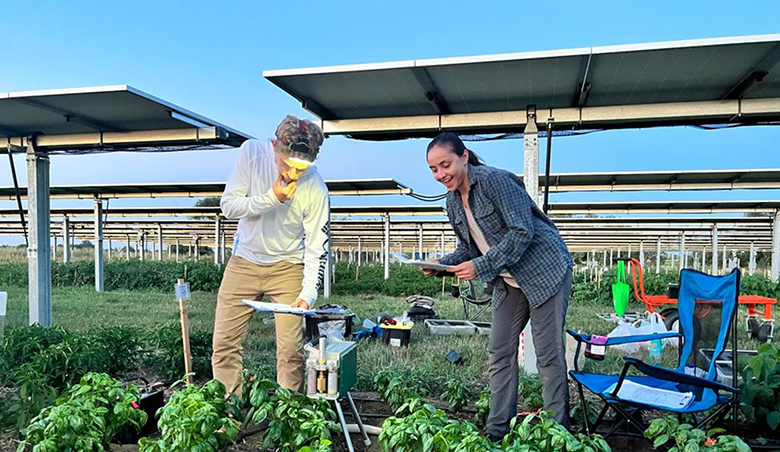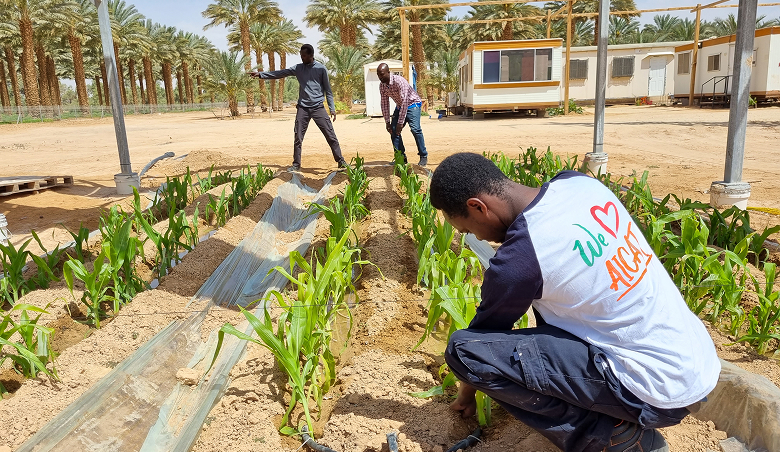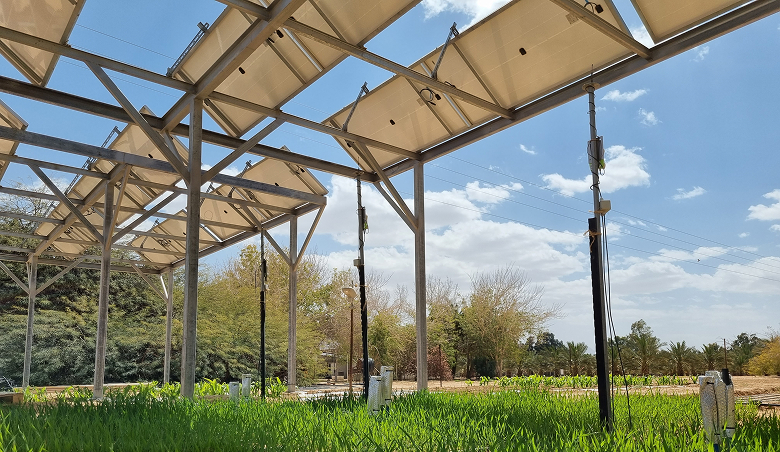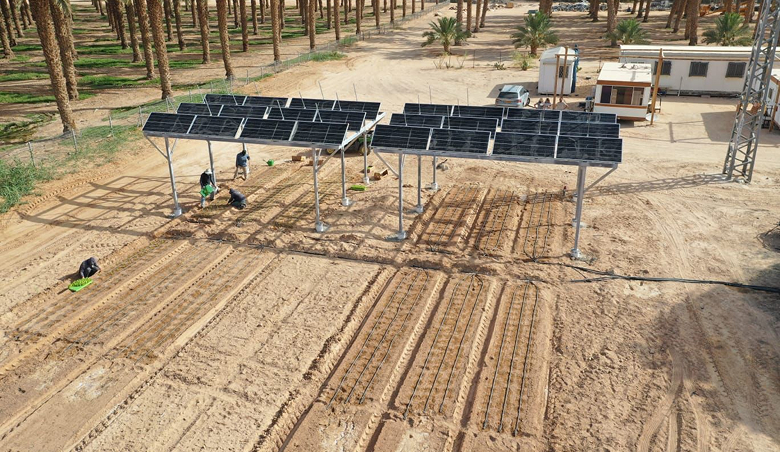The Agrivoltaics
Agrivoltaics is the simultaneous use of land for both solar energy and agriculture. In this system, solar panels shade crops grown underneath them which reduces radiation and water use, while the crops decrease the temperature of the panels making them more efficient in energy production. This research explores the benefits of integrating solar panel technologies on different crops in different climates.
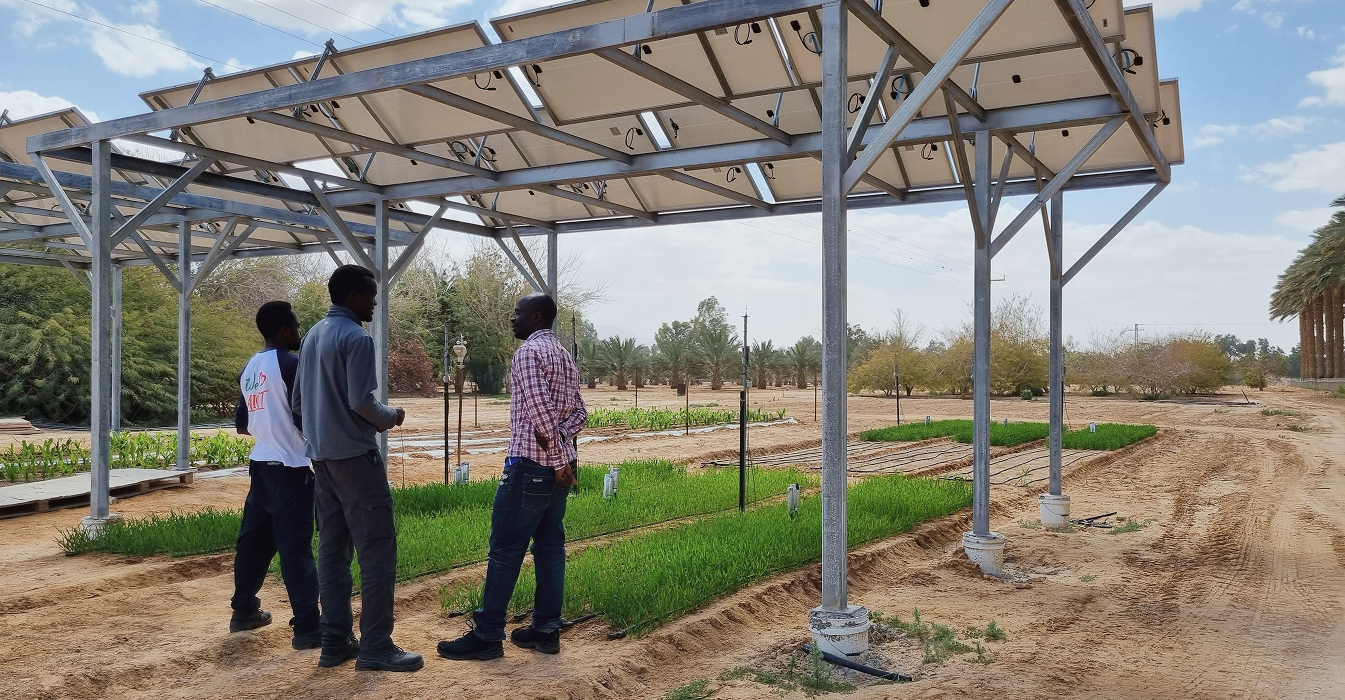
The innovative solutions emerging from the Kasser Joint Institute are strategically developed to address the interconnected challenges of the food-energy-water nexus. These groundbreaking initiatives are designed to empower small-scale farming communities worldwide by providing them with integrated systems that allow for the sustainable cultivation of food, generation of energy, and treatment of water—all within a single, harmonious framework.
One of the first projects to make a tangible difference is Agrivoltaic which was initiated in 2021 and led by Prof. Greg Barron Gafford from the University of Arizona and Dr. Tali Zohar from the Arava.
This project involves the simultaneous use of land for both solar energy production and agricultural cultivation. In this system, solar panels are strategically installed above crops, creating a dual-purpose environment where both energy and food production can thrive. The panels serve a dual function: by shading the crops underneath, they significantly reduce solar radiation and water evaporation, leading to more efficient water use and better crop yields in areas prone to heat stress. Conversely, the crops, in turn, contribute to the cooling of the solar panels, enhancing their efficiency in energy generation.
This innovative project goes beyond mere theory, as it actively explores the practical benefits of integrating solar panel technologies with various crops across different climatic regions. By conducting detailed research and field studies in the Arava desert and the University of Arizona, the project aims to identify optimal crop varieties and solar configurations that can maximize both agricultural output and energy production. Our goal is to create a scalable model that can be adapted to diverse environments, enabling communities to sustainably meet their food, energy, and water needs.
In doing so, the Agrivoltaic project not only addresses the immediate challenges of resource scarcity and climate change but also sets the stage for a more resilient and self-sufficient future for small-scale farmers around the globe. Through the Kasser Joint Institute’s commitment to innovation and sustainability, this project exemplifies how integrated solutions can transform challenges into opportunities, fostering a world where food security, clean energy, and water access are no longer mutually exclusive but are achieved in synergy.
